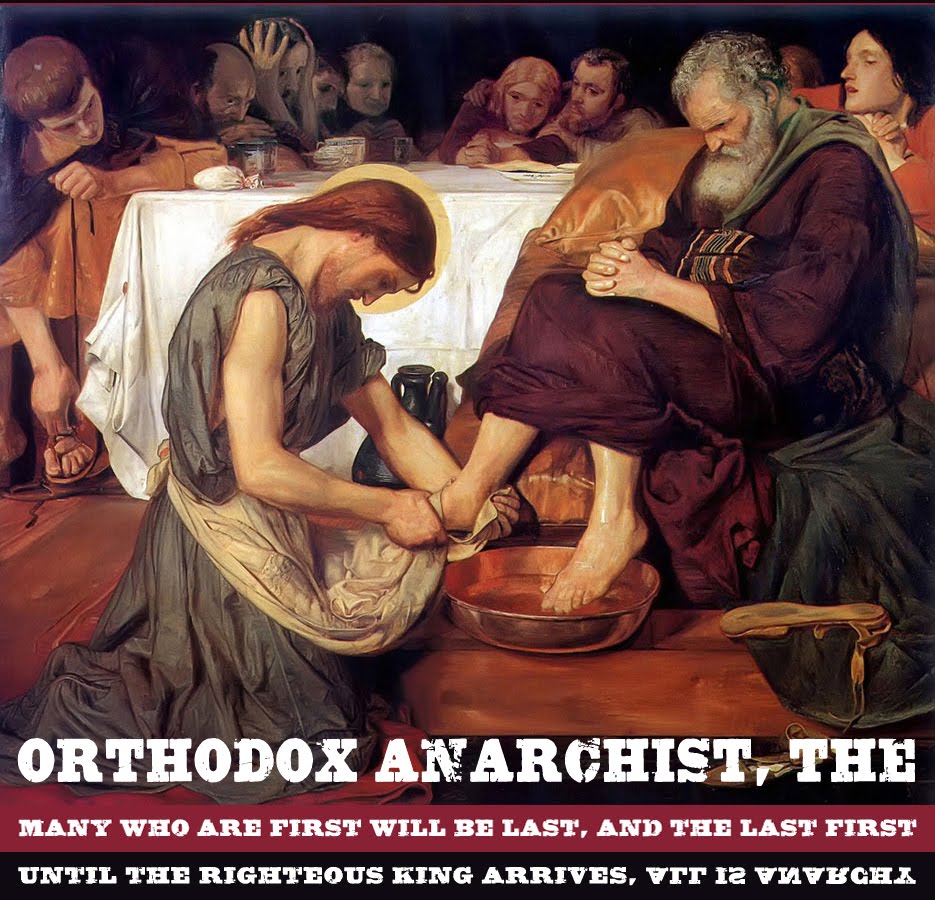‘If a man looks at a woman lustfully, he has already committed adultery with her in his heart,’ says the Lord Jesus. However, here is one place where I disagree, I think, with the majority view, that takes this literally in a juridical sense. I don't believe that Jesus meant this in a juridical sense. I mean, what I think Christ was pointing out here is not the fact of sinning on a case by case basis, where like in a Catholic laundry list confession, one ransacks one's memory for every little damnable offense in thought, word and deed so as to speak it aloud and ask for forgiveness, but rather, that the human animal is just that—an animal, a living soul that is tossed this way and that by every form of desire, legitimate and illegitimate.
What Christ is telling us by this kind of statement is that everything we think, speak and do comes forth from the inmost disposition, which has only two stark choices: obedience or disobedience. Like turning on the lights in a room, or turning them off. There's no dimmer switch. Christ is telling us that's how it is, not setting us up for a moment by moment court case where we will be judged for every little thing we did or didn't do but just imagined. That idea is just natural human thought overruling the Lord, whose thoughts are not our thoughts. It's a Christian version of karmic law, which according to human reasoning should exist, therefore does exist. This attitude is the religion mill of the race since we were expelled from Eden.
The flip-side of this mistaken idea that thinking of a sin and yielding to doing it carries the same penalty, is the idea circulating in churchly circles that thinking of a good deed and not being able to do it carries the same reward. Both the positive and the negative versions of this concept have impacted and distorted Christianity, especially in the Catholic/Protestant West, but even in the Orthodox East, since the beginning, framing false theologies and turning the Message into mere religion. ‘If something should be true, it must be true. If something should have happened that way, that's how it happened.’ How do we know that Mary is the Queen of heaven? Well, God is the King, and since He is the Father of Mary's Son, she must be Queen.
The error is not in the essential truth of these things, but in the way the truth is applied at the detail and practical level. Regarding sins that we commit, yes, on all three levels, thought, word and deed, yes, they are part of the 'sin' of the world, which Christ takes away, as well as the 'sins' of the world, which He equally disposes of on our behalf. The West takes these things juridically, being a law-based culture, believing in karma without calling it that. The East, when it is not westernized—and unfortunately it is becoming so more and more—takes these things ontologically, being a humanistic culture, believing that Christ and humanity are a single organism in process of being integrated.
When a desert father or a medieval Catholic saint like Thomas à Kempis says things like ‘I haven't done anything good,’ or when Christ says, ‘If a man looks at a woman lustfully…’ we cannot use these statements as a self-evaluation leading to a self-improvement regimen. The good news, the gospel, has many aspects. One of them is to enlighten us with the knowledge that human life is not all about law, but all about grace. Those who in the Church—and the Orthodox are particularly fond of this—refer to the law of God, or of Christ, and would enroll us in following it by entrenching us in the minutiae of legalism, have just added another layer to humanity's worst nightmare—religion—which Christ came to end.
We cannot climb to heaven by taking a literal view of John's ladder, nor can we return to paradise by following the steps we left it in reverse order. Like Hansel and Gretel dropping breadcrumbs in the forest path so they could find their way back, we find our breadcrumbs have been eaten by the birds. There is no way to climb to heaven except by being carried there in the arms of the only One who came down from heaven. And there is no path to paradise except by being hung on the Tree to die there next to Jesus as a common criminal. Everything that Jesus teaches and does in the gospels is for us to be lifted up with Him just as He is, drawing all men to Himself. Book 2, Chapter 12, of the Imitation of Christ tells it all.
Next…

No comments:
Post a Comment